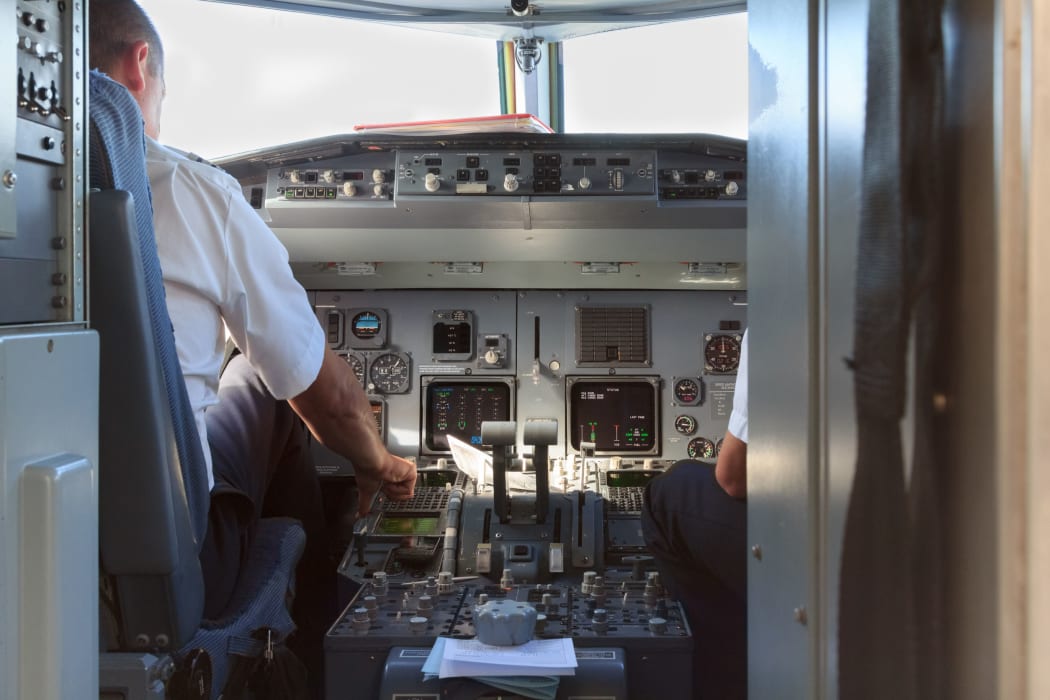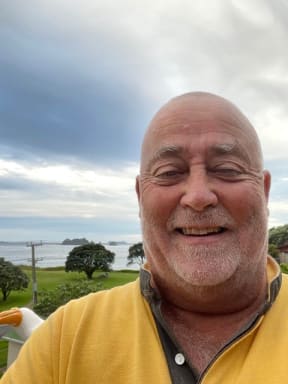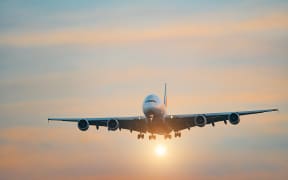Pilots flying into medical trouble are protesting against a safety system they say is broken.

An amendment to the Civil Aviation Bill could come before Parliament soon, aiming to modernise a suite of laws that are 30 years old. File image Photo: 123rf
This follows a big win by a Cathay Pacific senior captain who took the Civil Aviation Authority (CAA) to court for grounding him as a suicide threat to passengers.
Graham Lindsay, now retired and living in Coromandel, found himself at the centre of accusations in 2016 that he presented a homicide-suicide risk. This was a year after a co-pilot of a jet with 150 people on board deliberately crashed it in France, killing everyone.
An occupational health expert said Lindsay was caught up in CAA's "archaic" aviation medical surveillance system.
"It's unsafe for the flying public for all sorts of reasons," said the expert, Emeritus professor of medicine Des Gorman of Auckland University, who scores the system "perhaps two, perhaps three" out of 10.
In Lindsay's case, the district court judge made stinging criticism of the CAA for bias and being overzealous - criticism that the CAA said it accepted.
'A really hard ride' to get ruling - Lindsay
"They put me in the limelight in aviation, and basically portrayed me as a murder-suicide pilot, which is completely against everything I've worked for," Lindsay told RNZ.
"I've had 40 years of unblemished flying, and my integrity as a professional pilot was never questioned."
The court heard he mentored other pilots, and was a qualified air accident investigator.
Lindsay said CAA was right to be cautious - he stood himself down at his Hong Kong base initially - but it then went off the rails.

Graham Lindsay. Photo: Supplied
"It started to come to light to me that this just wasn't right," he said.
"CAA, I believe, didn't prove that they have a just culture.
"They're not taking duty of care to pull in all the information. They seemed to attack me personally rather than go for something professional."
It was "very emotional" to get a ruling that the medical assessors were wrong, he said.
"It's been a really hard ride.
"My mum, who's 91 in Ryman [home] in Auckland, she's ringing me in tears every day. So, you know, it has had a big toll."
Lindsay said he was lucky he could afford the $350,000 in legal bills (the court has yet to address costs).
"I don't want to see people just give up because they either can't afford it or couldn't mortgage the house to be able to fund something."
'Dark ages'
CAA's new director Keith Manch was asked by RNZ if he had full confidence in his principal medical officer in the Lindsay case but did not make himself available to comment.
Manch has acknowledged the authority's "clear shortcomings" in Lindsay's case - but also says it has fixed itself since 2018.
Prof Gorman rejects this.
He was central to trying to overhaul the surveillance system 20 years ago but, despite some law changes, was largely stymied.
Back then, he found doctor errors were allowing too many unsafe pilots to fly, with more than half their medical files flawed, such as failing to record poor eyesight or heart problems.
Two decades on, the system "belongs in the dark ages of ... prescriptive health surveillance practice", Prof Gorman said.
"Yes, there are some people flying who shouldn't be flying. There's also people being held back from flying who are quite fit to fly.
"It is inconsistent in both directions."
The system encouraged pilots to hide medical problems, including in mental health; it was prone to "miss some things ... [and] over-react to some things", he said.
Prof Gorman is working with the Air Line Pilots' Association, trying to amend the Civil Aviation Bill before Parliament that aims to modernise a suite of laws that are 30 years old.
"If I'm a pilot, I don't want to be targeted for something that's not a big deal," he said.
"But if something is important, I want it to be managed expeditiously and openly and in a way in which... I fully participate in sorting out my risks."
Prof Gorman is not hopeful. CAA was a clumsy bureaucracy too captured by the medical and aviation industries to move, he said.
'This really upset me this case' - Aircraft Owners and Pilots Association
The Aircraft Owners and Pilots Association echoes that. It only recently succeeded after a decade-long struggle with CAA to improve how recreational pilots get medical clearance, said president Stephen Brown.
A GP in Rangiora, Brown cites cases he knows of personally, of a pilot grounded after being prescribed anti-depressants, though he was only slightly down, and CAA finding out, and another put under restrictions after alcohol testing that Brown said was unfair.
He read the Lindsay 55-page court ruling about how the CAA's medical officers appeared "primed to overreact" due to international talk about the risks of homicide-suicide flights, though these are very rare.
"They do a lot of talking with other jurisdictions around the world, and they have ... flags that they're looking for," he said.
"But the red flags were very small in this one, and if you talk to people enough, long enough, you will find red flags in everybody.
"So this really upset me this case ... just how it destroys a person's life.
"Luckily, Mr Lindsay was of a strong character, and ... has now put all of that personal stuff out in the public domain, allowing other people to learn from his experiences and hopefully CAA to implement some change."
'Robust' medical decisions
CAA defends its medical certification processes as "robust".
It cites the fact the "vast majority" of its decisions get upheld on appeal: In fact, just seven out of 180 appeals by pilots in the last decade were upheld by the convenors that CAA uses.
Brown reads this entirely differently.
"The convenor process is, in my mind, fraught with danger. It almost always sides with CAA," he said.
"I imagine they have a bias in favour of the regulator."
His association, as well as the Air Line Pilots' Association, and commercial group Aviation New Zealand, are all now pushing for an independent tribunal that pilots could appeal to, but the new Civil Aviation Bill does not allow for it.
Graham Lindsay had a stroke 18 months ago and no longer flies. He was cautioned by some colleagues against taking on a government department, but he could not give up, he said.
Civil Aviation had to start listening and learning. "At the moment, there's not a lot of trust," he said.



